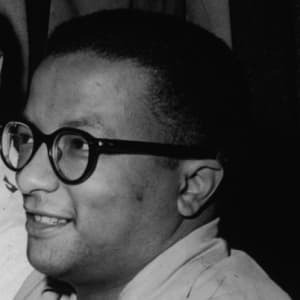
Sugar Minott
Jamaican reggae singer-songwriter Sugar Minott was best known for his hit, “Good Thing Going,” a cover of Michael Jackson’s “We’ve Got a Good Thing Going.” Minott’s version reached No. 4 on the British singles chart in 1981.
Synopsis
Lincoln Barrington Minott, better known as Sugar Minott, was born in Kingston Jamaica on May 25, 1956. He made his first important recordings for Studio One, the seminal studio and record label owned by influential producer Clement "Coxsone" Dodd. He pioneered the dancehall style of laying new vocal tracks over original 1960s backing tapes instead of using live musicians in the studio. Minott died in St. Andrew Parish, Jamaica, on July 10, 2010.
Early Life
Born one of eight children in Kingston, Jamaica, in 1956, Sugar Minott began working with sound systems, roving groups of deejays and MCs, before he entered his teen years. After working with the Sound of Silence Keystone and Gathering of Youth systems, he teamed with Derrick Howard and Tony Tuff to form the singing trio The African Brothers in 1969. Minott's solo career began to take off when he began working as a singer, guitarist and percussionist at Clement "Coxsone" Dodd's influential Studio One, Jamaica's first black-owned studio and record label.
Minott's early singles, including "Hang On Natty," "Mr. DC" and "Jah Jah Children," drew praise and led to the 1977 release of his debut album, Live Loving. After leaving Studio One in 1979, he started his own label, Black Roots, to produce and record up-and-coming artists like Barrington Levy, Tony Tuff, Tenor Saw and Barry Brown.
Musical Career
Minott's biggest hit was a cover of the 1971 Michael Jackson tune, "We've Got a Good Thing Going." Minott's version, "Good Thing Going," reached No. 4 on the British singles charts in March of 1981. Earlier, in 1979, he received wide acclaim for two socially conscious singles, "Hard Time Pressure" and "Ghetto-Ology."
Minott became a pioneer of the dancehall genre when he laid new vocals tracks over original 1960s backing tapes instead of live musicians. This method was commonplace for live shows, but Minott brought the practice into the recording studio, sparking a revolution in Jamaican music.
"[Minott] mastered every reggae style and made significant contributions to each of them—from roots and message music into lover's rock, to the computerized techno music of the dancehall genre in the mid-1980s," Roger Steffens, co-founder of the reggae magazine The Beat, told The New York Times.
Personal Life and Death
Minott married Maxine Stowe, Clement Dodd's niece and a prominent Jamaican singer in her own right, in 1993.
Minott died in St. Andrew Parish, Jamaica, on July 10, 2010. He was survived by his wife, Stowe, and 14 children—four with Stowe, and the others from previous relationships.




